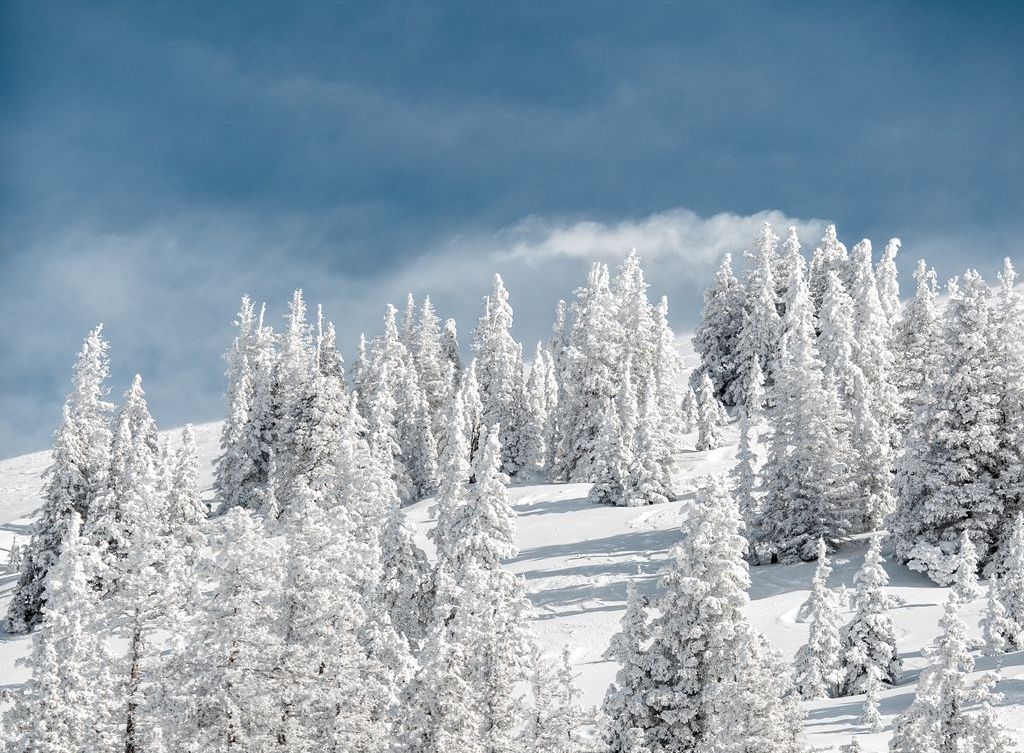It’s downright brumal 🧣 out there. Gelid ❄️, some might say. Or hiemal 🌬, even.
Heard any of these words before? All of them refer to weather that’s wintry.
With a blizzard bearing down on the East Coast this week, we wanted to take a closer look at some winter vocabulary — and how it has evolved over thousands of years.
Brumal (adjective) — wintry
In today’s English, “brumal” is a catchall term for winter weather (although not one you’re likely to hear in casual conversation).
The root of brumal is the Latin brevima, as in “brevima dies.” That means “shortest day”: referring to the winter solstice 🌗 being the shortest day of the year.
(Our present-day word brief has the same Latin origin.)
So, we can think of brumal as a descriptor of winter’s short days and long nights. But the term took a slightly different direction in Europe. “Brume” is a French word meaning winter mist or fog — the kind you might encounter by the Mediterranean 🌫 when conditions are right.
Brumal can be used to reference this type of fogginess. Or, if you prefer, as a general term for winter weather. Go ahead, have some fun with it. 😆
Gelid (adjective) — very cold
Keep this one in mind for Wordle. “Gelid,” pronounced with a soft g, is a way to describe conditions that are extremely cold and/or icy.
Is frozen water a gel? Not exactly, given that the definition of gel is “a semirigid colloidal dispersion of a solid with a liquid or gas.”
If you’ve fallen on ice before 😳, you know how hard, and not at all gel-like, it is. But water does essentially gel (become more rigid in structure) when it freezes.
That’s why the Latin verb for “to freeze” is “gelare”. And the use of “gel” to mean “freezing cold” goes back even further than that. Proto-Indo-European, the precursor of dozens of today’s languages, gave us this root — used in glacial, chill, gelato, and many other shiver-inducing words.
Cold (adjective) — having a low temperature
In addition to glacier and gelato, the PIE root *gel- also gave us “cold.”
From those ancient origins, early Europeans adapted the *gel-/*gol- root to describe chilly weather. Proto-Germanic, which came about around 500 BCE in what is now southern Scandinavia, used kaldaz to mean cold.
Germanic split off into three main branches as people migrated across Europe ✈️. But they took their cold-weather words with them.
In Old English, spoken from the 400s CE to about 1000 CE, calan meant “to be cold” or “to make cold.” Old Norse, used in Scandinavia from the 600s CE to the 1400s CE, had the word kala for “to freeze.”
Even today, the English cold has cognates in other languages. In German, it’s kalt. In Danish, it’s kold. B-r-r-r is a feeling 🥶 that exists everywhere.
Hiemal (adjective) — of or relating to winter
Hiemal looks like it’s pronounced hy-mul, but there’s an extra syllable in there: hy-uh-mul. It simply means “wintry.”
For this one, like cold, we have the Proto-Indo-Europeans to thank. Their root *ghei- (silent g) meant “winter.”
Because winter is pretty much the same across Eurasia, the PIE root *ghei- took hold in lots of different places. It’s the origin of the Sanskrit word for snow, hima — as in the Himalaya mountain range 🏔. And on the opposite side of the Eurasian landmass, hībernum meant winter in Latin. That gives us both hibernate and Hibernia, the Latin term for Ireland.
(Visit Ireland in the summer and this name makes sense. Its warmest days 🔥 are in the low 60s, pretty similar to the Mediterranean in winter.)
Hiemal might have an odd pronunciation, but it should be easy to remember. Just keep in mind that hiemal weather makes you want to hibernate.
Winter (noun) — the season stretching from late December to late March in the Northern Hemisphere
Many English words come from Latin, so why do we say “winter” instead of “hībernum”? Well, winter means different things in different places.
In England, winter is extremely damp ☔️. That’s probably why the English winter has the same roots as water and wet.
Yet again, the Proto-Indo-Europeans showed us the way. Their root *wed- meant water. It’s the source of a whole bunch of modern words, including wash and whisky. According to this Reddit post, *wed- even forms the basis of otter.
Considering that PIE is behind so many modern languages — from Germanic to Slavic to Persian to Sanskrit — it’s not too surprising that winter words have remained the same for thousands of years. What is funny is that we don’t actually know what PIE was called by the people who spoke it. “PIE” is simply the name we use. 🤷♂️
Still, we know the Proto-Indo-Europeans suffered through winter just like us. Some aspects of the human experience really are universal.
Photo by Katie Moum on Unsplash.


